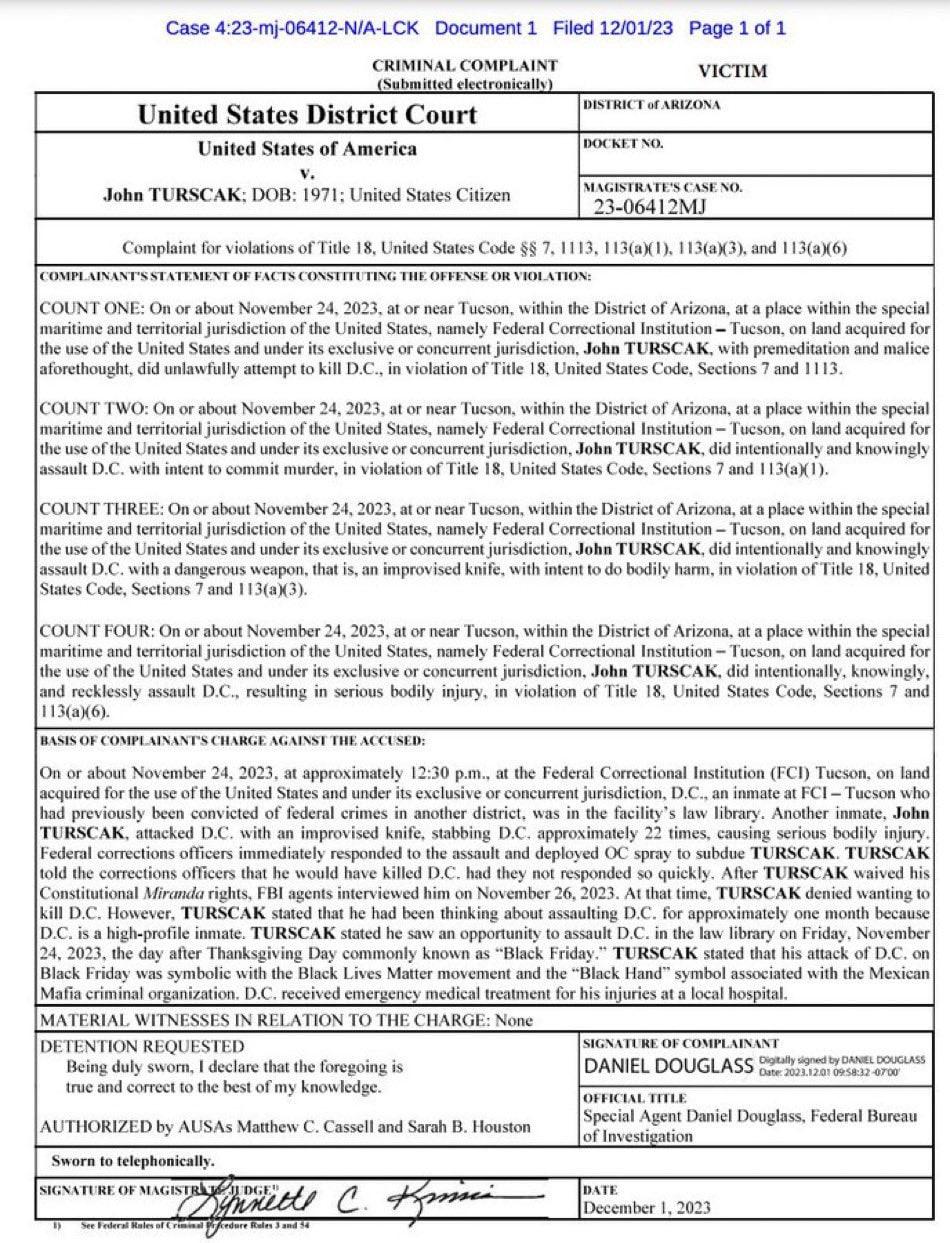by WorldTribune Staff, December 4, 2023
The inmate who stabbed ex-Minneapolis officer Derek Chauvin is serving a 30-year sentence for crimes committed while working as an FBI informant.

According to prosecutors in the prison stabbing case, ex-Mexican Mafia member John Turscak, 52, stabbed Chauvin 22 times inside a Tucson federal prison and said he would’ve killed him if corrections officers had not responded so quickly.
Turscak is charged with attempted murder, assault with the intent to commit murder, assault with a dangerous weapon, and assault resulting in bodily injury.
Chauvin has been moved from a local hospital back to prison custody “for his follow up care,” his lawyer said in a statement.
Related: No, Policeman Derek Chauvin did not get a fair trial in Minneapolis, April 30, 2023
“His family is very concerned about the facility’s capacity to protect Derek from further harm,” attorney Gregory Erickson said in a statement Sunday. “They remain unassured that any changes have been made to the faulty procedures that allowed Derek’s attack to occur in the first place.”
“Derek’s family did receive confirmation from Derek himself that the facts contained in the charging document are accurate; the attack was made in the law library, where the perpetrator attacked Derek from behind with an improvised knife,” Erickson said.
Court documents show that, during his time in the Mexican Mafia, Turscak collected taxes from street gangs and drug dealers in return for mafia protection.
He later worked as an undercover FBI informant against his old gang. The FBI reportedly dropped him when he kept dealing drugs and authorizing assaults.
Chauvin, 47, was sent to FCI Tucson from a maximum-security Minnesota state prison in August 2022 to simultaneously serve a 21-year federal sentence for violating George Floyd’s civil rights and a 22½-year state sentence for second-degree murder.
Chauvin’s lawyer at the time, Eric Nelson, had advocated for keeping him out of general population and away from other inmates, anticipating he would be a target. In Minnesota, Chauvin was mainly kept in solitary confinement “largely for his own protection,” Nelson wrote in court papers last year.
Last month, the U.S. Supreme Court rejected Chauvin’s appeal of his murder conviction. Separately, Chauvin is making a longshot bid to overturn his federal guilty plea, claiming new evidence shows he didn’t cause Floyd’s death.
Derek Chauvin was stabbed 22 times by a former FBI informant and Mexican Mafia member, who says he did it in solidarity with BLM. His race is listed as white in the Federal Bureau of Prisons. The journalist who spoke with Chauvin and produced “The Fall of Minneapolis”, Liz… pic.twitter.com/FshZ6NhRRt
— Jesse Watters (@JesseBWatters) December 2, 2023

Publishers and Citizen Journalists: Start your Engines
